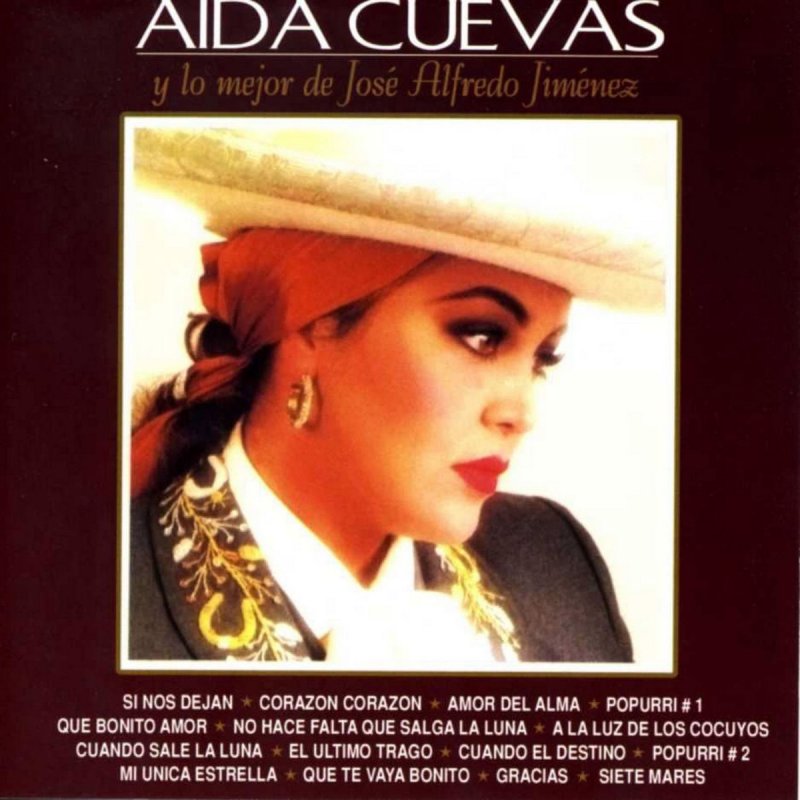
Cohan, but the Yankee Doodle Dandy's songs are now only heard during patriotic-themed days, while Jiménez's tracks are gospel for any aspiring mariachi singer. Jiménez's songs permeated and influenced Mexico's national character in a way no American songwriter ever did-the closest is George M. Almost 55 years later, his canon remains the best insight into the Mexican psyche, best enjoyed with tears, tequila and the mournful trumpets of a mariachi. “Without a doubt,” Mejía told a Mexican magazine years later, “I had the luck of discovering the greatest composer of Mexico, and besides, he did it without knowing one note of music.”Ī recording contract soon followed, and Mexico's greatest singers lined up to record Jiménez's compositions. The nervous man-child belted out “Ella” (“Her”), a resigned sigh about the one who got away. An exasperated Mejía finally asked Jiménez to just sing. Mejía grabbed a guitarist, who asked Jiménez what key he would perform in he admitted he couldn't read music. Mejía asked Jiménez to play his tunes on a guitar he confessed he couldn't play the instrument. Jiménez arrived at a recording studio a couple of days later, libretto in hand. But one night (actually, more like 4 in the morning), Jiménez persuaded legendary mariachi crooner Miguel Aceves Mejía to give him a chance.

The then-20-year-old bused tables at a bar, where he begged visiting musicians to listen to him sing.

In 1946, a penniless José Alfredo Jiménez arrived in Mexico City from his native Guanajuato with starry-eyed dreams of becoming a singer. Prolific is a descriptive word that only scratches the surface to describe the value of his music to Mexicans and Americans of Mexican descent world wide.All great Mexican tales begin in a bar, and the one I'm about to tell is no different. Everything Mexican begins with a Jose Alfredo Jimenez Song Deb Leticia Gordils," Jose Alfredo Jimenez songs have lasted for nearly 5-decades, after his death, like the legacies past down thru generations so are the old ranch tunes to Mexican children in every household on the North American continent. On January 19, 2016, Google celebrated his 90th birthday with a Google Doodle. In Mexico it has a Mausuleo popularly known as " Mausoleum of José Alfredo Jiménez". Jiménez received the accolade due to the fact six of the fourteen tracks in the album were composed by him, thus making Jiménez eligible for the award. In 2018, Jiménez was posthumously awarded the Latin Grammy Award for Album of the Year for ¡México Por Siempre! by Luis Miguel. It was his way of thanking the public for all of the affection they had shown him throughout his career as one of the most prolific and highly regarded composers and singers Mexico has ever produced. One of his last appearances on Mexican television occurred in 1973, just months prior to his death, where he introduced his last song, "Gracias", accompanied by his wife, singer Alicia Juarez. He was only forty-seven years old when he died in Mexico City, of complications resulting from cirrhosis of the liver. Like many of his contemporary stars, such as Jorge Negrete, Pedro Infante, and Javier Solís, Jiménez died young. The country artist Luke Tan recorded a disc of his favorite Jiménez songs in Spanish, including some English translations.

In addition, Joaquín Sabina paid homage to Jiménez with his song, "Por el Bulevar de los Sueños Rotos" ("On the Boulevard of Broken Dreams"). In addition to his own recordings, many of his songs have been recorded by renowned artists from around the Spanish-speaking world, most notably by the following artists: Selena, which she sang “Cuando Nadie Te Quiera”, Miguel Aceves Mejía, Enrique Bunbury, Antonio Aguilar, Luis Aguilar, Lola Beltrán, Vikki Carr, Gualberto Castro, Rocío Dúrcal, Alejandro Fernández, Pedro Fernández, Vicente Fernández, Los Relámpagos Del Norte con Cornelio Reyna y Ramón Ayala, Los Tigres del Norte, Manolo García, Little Joe Hernández & The Latinaires, Julio Iglesias, Pedro Infante, the Mexican rock group Maná, Luis Miguel, Jorge Negrete, Sunny Ozuna & The Sunliners, María Dolores Pradera, Javier Solís, and Chavela Vargas.

The themed José Alfredo Jiménez' tomb in Dolores Hidalgo, Guanajuato it attracts visitors from around the world


 0 kommentar(er)
0 kommentar(er)
